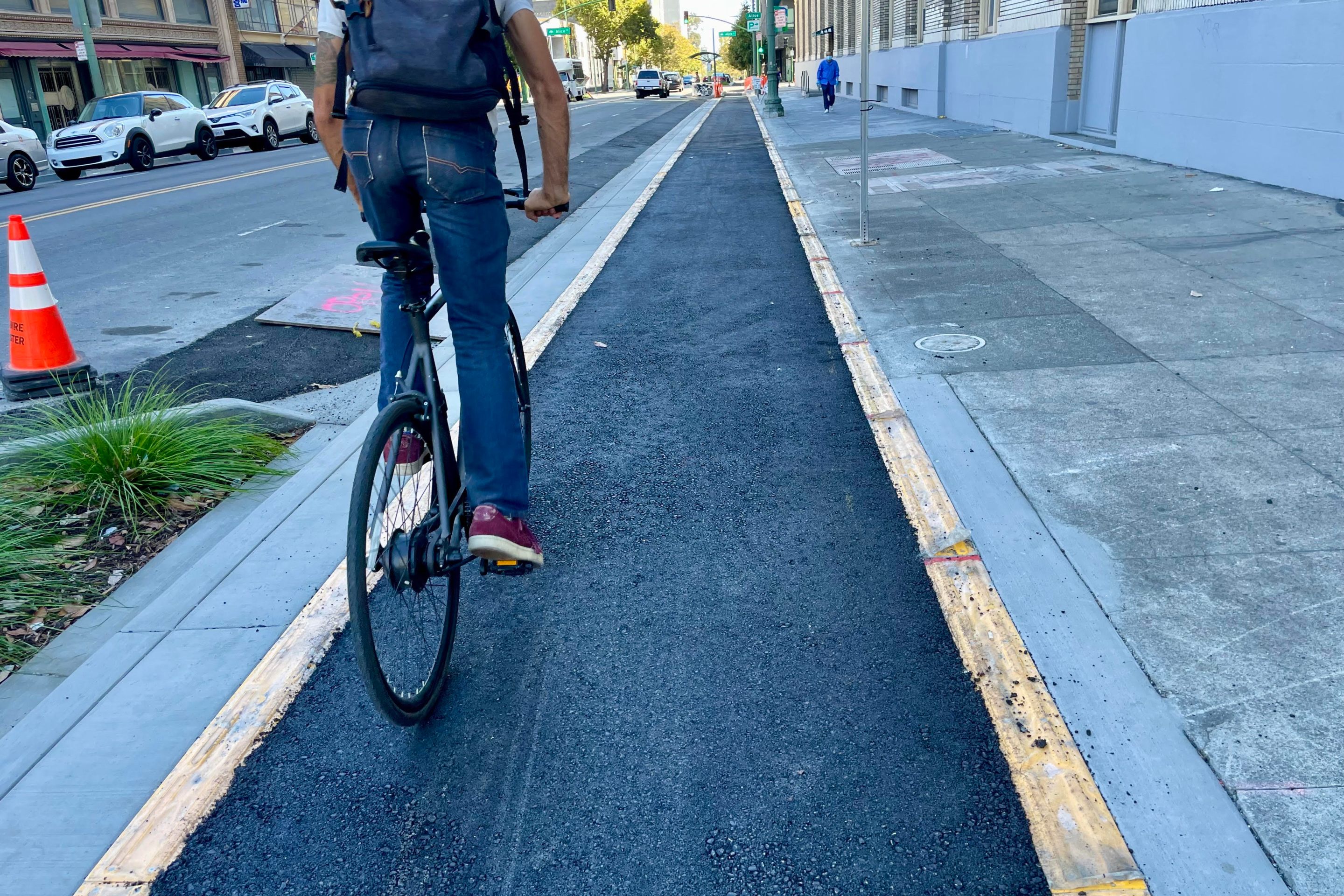Remember those radically different appropriations bills passed by the House and the Senate? And how I said they’d never come together, and they probably would never pass a 2012 budget anyway because all Congress ever does anymore is extend previous budgets because they can’t agree on anything?

Well, color me wrong.
House and Senate members came together andpassed a consensus $182 billion budget for five agencies, released Monday night. Transportation and HUD were two of them. The “minibus” (as opposed to an “omnibus” bill with all the government’s spending wrapped up in one) keeps to spending caps agreed to in August in the moments before the U.S. debt limit expired.
It’s the first consensus budget passed since last year. Congress never passed a 2011 budget, and this is the first budget bill so far this year, though we’re already six weeks into the 2012 fiscal year. So Congress is also planning to vote on a stopgap extension bill, keeping the current budget in place until December 16, to give themselves a chance to pass the remaining spending bills necessary to have a complete 2012 budget.
Agriculture’s budget is passed on its own, but Justice is lumped together with Science and Commerce, and Transportation and HUD are also budgeted as one. Of the three budgets included in the minibus, “THUD” was the only one that saw a minor funding increase, and not a drop. You can find the whole bill here [PDF].
Here’s how the soup turned out:
- THUD got a base total of $55.6 billion, an increase of $183 million above last year’s level, and a decrease of $19.4 billion below the President’s request. That’s $17.8 billion for the Department of Transportation for fiscal year 2012 — $4.1 billion above last year’s level.
- TIGER got $500 million. The House had zeroed it out altogether. The Senate, which had provided for $550 million, clearly won the day on this one. It includes language prioritizing rail, highway, and transit projects that improve or expand existing systems, rather than building new ones.
- Despite a valiant attempt by a few supporters in the Senate to maintain at least a small slice for high-speed rail, there is nothing in this big black bag for fast trains. John Robert Smith of Reconnecting America said in a statement that he was “disappointed” to see Congress “relinquishing its support” for a national high-speed and intercity passenger rail network, which he says would create jobs and give people more transportation choices to access jobs.
- Another big loss: the Sustainable Communities Initiative – HUD’s contribution to the interagency Partnership for Sustainable Communities – has been eliminated. “The Partnership for Sustainable Communities is one of the federal government’s most effective tools,” said Geoffrey Anderson of Smart Growth America in response to the cut. “If you think building homes that people can afford near jobs and schools is a sound strategy for rebuilding our economy, if you think local governments can partner to deliver service more efficiently, if you want to help communities copy other localities that have saved hundreds of millions in federal infrastructure funding, this was the program for you.”
Further, without enactment of a new surface transportation authorization bill with large amounts of additional revenues this year, the Highway Trust Fund will be unable to support a highway program in fiscal year 2013.
Neither transportation proposal in play includes “large amounts of additional revenues.” The Senate proposal has the Finance Committee trying to scratch out $12 billion out of some other budget item, which still may not be enough, and the House is still pretending that oil drilling will provide enough money quickly enough to pay for transportation spending this fiscal year.
Without further ado, the rest of the budget items from the conference report:
- “New Starts” gets $1.9 billion, plus another $188 million for New Starts projects funded under the formula bus program. The House would have cut it to $1.55 billion; the Senate was looking for a $358 million raise, to $1.955 billion.
- The conference committee also included a new policy prohibiting FTA Full Funding Grant Agreements, “if the project has a “New Starts” program funding share greater than 60 percent of the total project cost.”
- Rail got a huge haircut from the president’s request of $8.2 billion, but the $1.6 billion it has been allocated is still $326 million above last year’s level. The lion’s share of this allocation — $1.4 billion – goes to Amtrak, primarily for capital improvements.
- The agreement also includes policy reforms for Amtrak – requiring overtime limits on Amtrak employees to reduce costs, and prohibiting federal funding for routes where Amtrak offers a discount of 50 percent or more off normal peak fares.
- The federal highway program gets $39.9 billion, the annual spending level set by the latest surface transportation extension but a drop from $41 billion in FY2011. The Senate would have kept that level; the House bill would have dropped it to $27 billion.
- The agreement also provides $1.66 billion for the Federal Highway Administration’s Emergency Relief program, which helps states rebuild highways damaged by natural disasters like Hurricane Irene and the Missouri River flooding.
- HUD’s Community Planning and Development programs took a $830 million hit, reducing its budget to $6.6 billion. This includes the Community Development Block Grant program as well as disaster recovery. The agreement also includes some performance requirements like oversight reports on how community development funds are used and reforms to the HOME Investment Partnerships Program, which the Washington Post found to be miserably mismanaged.
- The Essential Air Service is funded at $144 million, a slight drop from its previous $163 million allocation, with the stipulation that funds go only to communities that received service or qualified for the program during FY2010. However, all these attempts at frugality are offset by language stating that if the funds under this heading are insufficient to meet the costs of the essential air service program appropriation turns out to be too low, the Secretary of Transportation should just put in more money — as much as the program needs. That’s a pretty nice insurance policy, and one other programs in the transportation sphere would certainly appreciate.
- The agreement maintains $150 million for transit safety on the DC Metro, as requested by the Senate, to be matched by DC, Virginia, and Maryland.
The House will vote tomorrow on the minibus budget, with the Senate following suit Friday.





